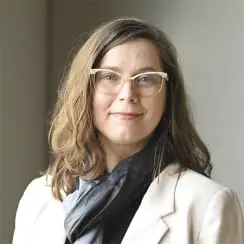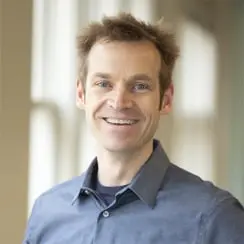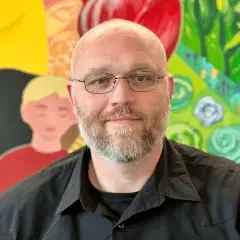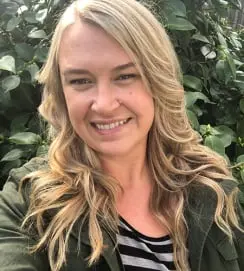 | 1 LU / HSW |
 | 1 LU / HSW |
Room: E143-144
Furnished by: Smith System + Steelcase Learning
Audience: Educators

Call to Action: Take the time to listen; the lived experiences of potential users can help us better understand their challenges and barriers. Don’t make assumptions; when supporting alternative education, the “norm” may be just the strategy to avoid. Little things go a long way; small features, supports or connections within spaces can really foster a school culture in a surprising way.
Abstract: The new Creekside Community High School in Tigard, Oregon, lives up to its name as an entity deeply rooted in community partnerships to promote learning. Guided by a vision to champion hands-on, community-based learning to meet the educational needs of students unable to thrive in a traditional school setting, the building brings disparate programs once spread across the Tigard-Tualatin School District under one roof. The student body is diverse, encompassing online learners, those with learning disabilities, teen parents, and youth returning to complete high school. To meet the needs of these learners as creative problem-solvers, community partnerships in manufacturing, ecology, and sustainable agriculture support school pathways that equip them with life skills for college, career, and beyond. Designed as a relational space rejecting the traditional hierarchical and institutional setup of the typical school, Creekside provides a warm “coffee shop/tech startup” vibe to care for students facing various life and academic challenges. Informal spaces are carved out for one-on-one tutoring, pullout services, or informal student/instructor check-ins. To nurture the school’s agricultural program and communal garden, direct access via a mudroom into the kitchen allows students to cook the food they grow for their peers and share a meal with their school community. As a Net Zero building with a monitor publicly displaying its sustainability metrics, Creekside serves as a teaching tool for occupants while also reaping the benefit of a generous rooftop photovoltaic rooftop array which consolidates the District’s investment in renewable energy. Together with the school’s integration in the community, the design of this school keeps students and their lived experiences front and center in the hopes of maximizing their learning potential and placing them on a path for success.
Learning Objectives:

As a Senior Interior Designer and Programming Lead, Amy brings strong technical and organizational skills and a cohesive interior design approach to all her projects. Her ability to create harmonious spaces through a balance of color, light, and healthy materials, along with a commitment to bringing underrepresented voices into design, has influenced a diverse range of projects in education and beyond.

Mark is a Project Architect well-versed in K-12 and higher education work who thrives at analyzing and bringing together disparate aspects of a complex project. His ability to blend technical knowledge and creativity to address multiple disciplines and stakeholders impacts the sustainable trajectory of a project, leading to smarter long-term design solutions.

Russ is a passionate advocate for holistic, community-centered education that leads to agency, interconnection, independence, and liberation. As the founding principal of Creekside Community High School since 2018, he believes schools can be welcoming places for rich, real-world learning gained through community development activism, but also a circle of partnerships--youth, families, educators, neighbors, helpers, friends, and community resources coming together to gather around our kids, starting a chain reaction of human well-being.

Katrin manages Impacts NW’s YouthSource program, including the Supa Fresh Youth Farm, which she co-founded in 2009 to provide a safe-haven worksite and training ground to help youth achieve their career and life goals. For 18 years she has empowered youth in varied educational settings, from the classroom to the farm, and beyond. Outside work Katrin helps run a nonprofit that brings free dance events to the city of Portland.
Community Engagement
Leads the internal and external communities through a discovery process that articulates and communicates a community-based foundational vision, forming the basis of a plan for the design of the learning environment. The vision is achieved through a combination of rigorous research, group facilitation, strategic conversations, qualitative and quantitative surveys and workshops. Demonstrates the skill to resolve stakeholder issues while embedding a community's unique vision into the vision for its schools.